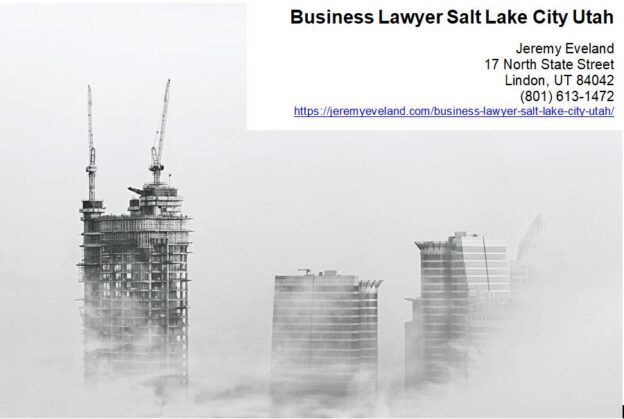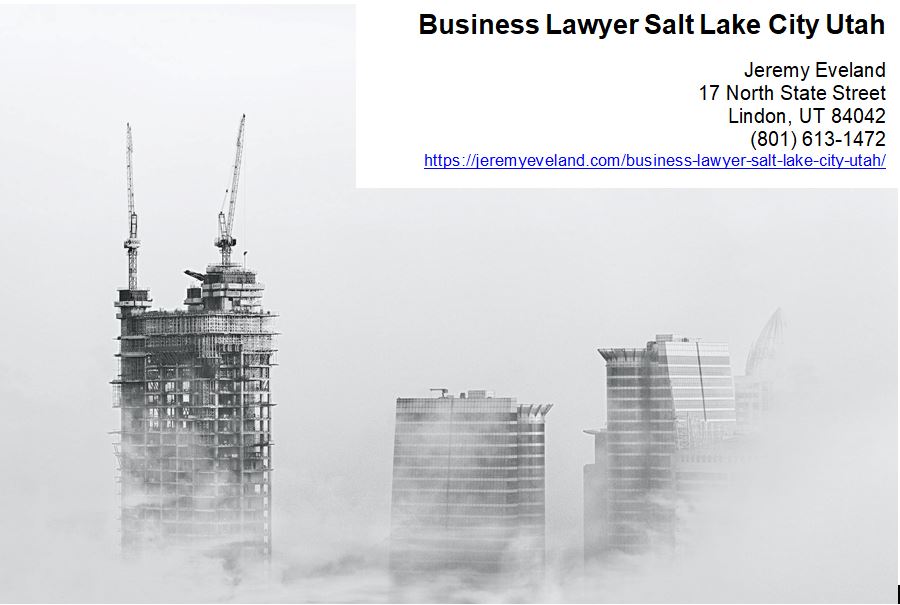Artificial Intelligence
-
Legal Topics About Artificial Intelligence
- Introduction
- Artificial Intelligence and Deep Learning
- What are Neural Networks?
- Understanding the Different Types of Artificial Intelligence: Machine Learning
- The History of Artificial Intelligence: From John McCarthy to Project Maven
- Exploring the Possibilities of Autonomous Vehicles
- The Impact of Artificial Intelligence on Human Rights
- How Artificial Intelligence is Changing the Way We Work
- The Future of Artificial Intelligence: What to Expect
- Exploring the Ethical Implications of Artificial Intelligence
- Why you Want a Business Lawyer Working With you on Artificial Intelligence
- Q&A
“Unlock the power of Artificial Intelligence to transform your business.”
Introduction
Artificial Intelligence (AI) is a rapidly growing field of computer science that focuses on creating intelligent machines that can think and act like humans. AI has the potential to revolutionize the way we interact with technology, from self-driving cars to virtual assistants. AI can be used to automate mundane tasks, improve decision-making, and even create new products and services. AI is already being used in a variety of industries, from healthcare to finance, and its potential applications are only beginning to be explored.
Artificial Intelligence and Deep Learning
Artificial Intelligence (AI) and Deep Learning are two of the most important technologies of the 21st century. AI is a broad term that refers to the ability of machines to perform tasks that normally require human intelligence. Deep Learning is a subset of AI that uses algorithms to learn from large amounts of data.
AI has been around for decades, but it has recently become more powerful and accessible due to advances in computing power and the availability of large datasets. AI is used in a variety of applications, from self-driving cars to medical diagnosis. AI can be used to automate mundane tasks, such as data entry, or to provide insights into complex problems, such as predicting customer behavior.
Deep Learning is a type of AI that uses neural networks to learn from data. Neural networks are algorithms that are modeled after the human brain and are capable of learning from large amounts of data. Deep Learning is used in a variety of applications, from image recognition to natural language processing.
Deep Learning has become increasingly popular in recent years due to its ability to learn from large datasets and its ability to make accurate predictions. Deep Learning is used in a variety of applications, from facial recognition to autonomous vehicles.
AI and Deep Learning are two of the most important technologies of the 21st century. AI is used to automate mundane tasks and provide insights into complex problems, while Deep Learning is used to make accurate predictions from large datasets. Both technologies are becoming increasingly important as the world becomes more data-driven and automated.
What are Neural Networks?
Neural networks are a type of artificial intelligence (AI) that is modeled after the human brain. They are composed of interconnected nodes, or neurons, that process information and learn from it. Neural networks are used to solve complex problems that are too difficult for traditional computing methods. They are used in a variety of applications, such as image recognition, natural language processing, and robotics. Neural networks are able to learn from data and make predictions based on the patterns they detect. This makes them a powerful tool for solving complex problems.
Understanding the Different Types of Artificial Intelligence: Machine Learning
Artificial Intelligence (AI) is a rapidly growing field of technology that has the potential to revolutionize many aspects of our lives. One of the most important components of AI is Machine Learning (ML). Machine Learning is a type of AI that enables computers to learn from data and make decisions without being explicitly programmed.
Machine Learning is based on the idea that machines can learn from data, identify patterns, and make decisions with minimal human intervention. It is used in a variety of applications, such as image recognition, natural language processing, and robotics.
At its core, Machine Learning is a set of algorithms that are used to analyze data and make predictions. These algorithms are designed to identify patterns in data and use them to make decisions. For example, a Machine Learning algorithm might be used to identify objects in an image or to recognize spoken words.
The most common types of Machine Learning algorithms are supervised learning, unsupervised learning, and reinforcement learning. Supervised learning algorithms are used when the data is labeled and the desired output is known. Unsupervised learning algorithms are used when the data is unlabeled and the desired output is unknown. Reinforcement learning algorithms are used when the desired output is known but the data is not labeled.
Machine Learning is an important part of AI and is used in a variety of applications. It is a powerful tool that can be used to automate tasks, improve decision-making, and create new products and services. As the technology continues to evolve, it will become increasingly important in our lives.
The History of Artificial Intelligence: From John McCarthy to Project Maven
The history of artificial intelligence (AI) is a long and complex one, beginning with the work of John McCarthy in the 1950s. McCarthy, a computer scientist and cognitive scientist, is widely credited as the father of AI. He coined the term “artificial intelligence” in 1956 and developed the first AI programming language, Lisp, in 1958.
In the 1960s, AI research began to focus on the development of expert systems, which are computer programs designed to mimic the decision-making processes of human experts. This research led to the development of the first AI-based computer game, “Nim”, in 1967.
In the 1970s, AI research shifted to the development of natural language processing (NLP) systems, which are computer programs designed to understand and respond to human language. This research led to the development of the first AI-based chatbot, ELIZA, in 1966.
In the 1980s, AI research shifted to the development of machine learning algorithms, which are computer programs designed to learn from data. This research led to the development of the first AI-based computer vision system, the “Neural Network”, in 1982.
In the 1990s, AI research shifted to the development of autonomous agents, which are computer programs designed to act independently in an environment. This research led to the development of the first AI-based autonomous vehicle, the “Robot Car”, in 1995.
In the 2000s, AI research shifted to the development of deep learning algorithms, which are computer programs designed to learn from large amounts of data. This research led to the development of the first AI-based facial recognition system, the “DeepFace”, in 2014.
Today, AI research is focused on the development of AI-based systems for a variety of applications, from autonomous vehicles to medical diagnosis. One of the most recent developments in this field is Project Maven, a US Department of Defense initiative to develop AI-based systems for military applications.
The history of AI is a long and complex one, and it is clear that the field has come a long way since John McCarthy first coined the term “artificial intelligence” in 1956. As AI research continues to advance, it is likely that we will see even more exciting developments in the years to come.
Exploring the Possibilities of Autonomous Vehicles
Autonomous vehicles, also known as driverless or self-driving cars, are rapidly becoming a reality. Autonomous vehicles are equipped with a variety of sensors and advanced software that allow them to navigate roads and highways without the need for a human driver. This technology has the potential to revolutionize the way we travel, providing increased safety, convenience, and efficiency.
The development of autonomous vehicles is being driven by advances in artificial intelligence, computer vision, and machine learning. Autonomous vehicles are equipped with a variety of sensors, including cameras, radar, and lidar, which allow them to detect and respond to their environment. This data is then processed by powerful computers, which use algorithms to make decisions about how the vehicle should navigate the road.
The potential benefits of autonomous vehicles are numerous. Autonomous vehicles are expected to reduce the number of traffic accidents, as they are able to detect and respond to potential hazards more quickly than a human driver. Autonomous vehicles are also expected to reduce traffic congestion, as they are able to drive more efficiently than human drivers. Additionally, autonomous vehicles could provide increased mobility for those who are unable to drive, such as the elderly or disabled.
Despite the potential benefits, there are still many challenges that must be addressed before autonomous vehicles can become a reality. One of the biggest challenges is ensuring the safety of autonomous vehicles. Autonomous vehicles must be able to detect and respond to potential hazards in a variety of conditions, including inclement weather and low-light environments. Additionally, autonomous vehicles must be able to interact safely with other vehicles and pedestrians.
Another challenge is ensuring that autonomous vehicles are secure from cyberattacks. Autonomous vehicles are equipped with a variety of sensors and computers, which could be vulnerable to malicious actors. To ensure the safety of autonomous vehicles, it is essential that they are equipped with robust security measures.
Finally, there are legal and regulatory challenges that must be addressed before autonomous vehicles can become a reality. Governments must develop regulations that ensure the safety of autonomous vehicles and protect the public from potential risks. Additionally, governments must develop regulations that ensure the privacy of autonomous vehicle users.
Autonomous vehicles have the potential to revolutionize the way we travel, providing increased safety, convenience, and efficiency. However, there are still many challenges that must be addressed before autonomous vehicles can become a reality. With continued advances in technology and the development of robust regulations, autonomous vehicles could soon become a reality.
The Impact of Artificial Intelligence on Human Rights
The emergence of artificial intelligence (AI) has revolutionized the way humans interact with technology. AI has the potential to improve the quality of life for many people, but it also raises important questions about the impact of AI on human rights. This article will explore the potential implications of AI on human rights, including privacy, autonomy, and freedom of expression.
AI has the potential to improve the accuracy and efficiency of decision-making processes, but it also raises concerns about privacy and autonomy. AI systems are often designed to collect and analyze large amounts of data, which can be used to make decisions about individuals without their knowledge or consent. This raises questions about the right to privacy and the right to control one’s own data. Additionally, AI systems can be used to make decisions about individuals without their input or consent, which raises questions about autonomy and the right to make decisions about one’s own life.
AI also has the potential to impact freedom of expression. AI systems can be used to monitor and censor online content, which can limit the ability of individuals to express themselves freely. Additionally, AI systems can be used to target individuals with specific messages or content, which can lead to the manipulation of public opinion and the spread of misinformation.
In addition, AI has the potential to impact the labor market. AI systems can be used to automate certain tasks, which can lead to job losses and increased inequality. Additionally, AI systems can be used to make decisions about hiring and promotion, which can lead to discrimination against certain groups of people.
Finally, AI has the potential to improve the quality of life for many people, but it also raises important questions about the impact of AI on human rights. It is important to consider the potential implications of AI on privacy, autonomy, freedom of expression, and the labor market in order to ensure that AI is used responsibly and ethically.
How Artificial Intelligence is Changing the Way We Work
Artificial Intelligence (AI) is revolutionizing the way we work. AI is a form of technology that enables machines to think and act like humans. It is being used in a variety of industries to automate processes, improve efficiency, and increase productivity.
AI is being used to automate mundane tasks, such as data entry and customer service. This allows employees to focus on more complex tasks that require more creativity and problem-solving skills. AI can also be used to analyze large amounts of data quickly and accurately, allowing businesses to make better decisions.
AI is also being used to improve customer service. AI-powered chatbots can provide customers with quick and accurate answers to their questions. This can help reduce customer wait times and improve customer satisfaction.
AI is also being used to improve the accuracy of predictions. AI-powered algorithms can analyze large amounts of data to make predictions about future trends and customer behavior. This can help businesses make better decisions about marketing, product development, and pricing.
Finally, AI is being used to improve employee productivity. AI-powered tools can help employees stay organized and on task. AI can also be used to automate repetitive tasks, freeing up employees to focus on more important tasks.
AI is changing the way we work in a variety of ways. It is automating mundane tasks, improving customer service, making better predictions, and increasing employee productivity. As AI continues to evolve, it will continue to revolutionize the way we work.
The Future of Artificial Intelligence: What to Expect
The future of artificial intelligence (AI) is an exciting prospect. AI has the potential to revolutionize the way we live, work, and interact with the world around us. As AI technology continues to advance, we can expect to see more applications of AI in our everyday lives.
AI is already being used in a variety of ways, from self-driving cars to virtual assistants. In the future, AI will become even more sophisticated and capable of performing complex tasks. AI will be able to understand natural language, recognize patterns, and make decisions based on data. AI will also be able to interact with humans in a more natural way, allowing us to communicate with machines in a more intuitive manner.
AI will also be used to automate mundane tasks, freeing up time for more creative pursuits. AI-powered robots will be able to perform tasks such as cleaning, cooking, and even providing medical care. AI will also be used to improve the efficiency of businesses, allowing them to make better decisions and increase their profits.
AI will also be used to improve the safety of our environment. AI-powered robots will be able to detect and respond to environmental hazards, such as oil spills or air pollution. AI will also be used to monitor and protect endangered species, as well as to monitor and protect our oceans and forests.
Finally, AI will be used to improve our quality of life. AI-powered robots will be able to provide companionship and emotional support, as well as help us with everyday tasks. AI will also be used to improve healthcare, allowing us to diagnose and treat diseases more quickly and accurately.
The future of AI is an exciting prospect, and one that will bring about many changes to our lives. As AI technology continues to advance, we can expect to see more applications of AI in our everyday lives.
Exploring the Ethical Implications of Artificial Intelligence
The development of artificial intelligence (AI) has been a major breakthrough in the field of technology, and its potential applications are vast. However, the ethical implications of AI are often overlooked. This article will explore the ethical implications of AI and discuss the potential risks and benefits of its use.
First, it is important to understand the concept of AI. AI is a form of computer technology that is designed to mimic human intelligence and behavior. AI systems are capable of learning from their environment and making decisions based on the data they receive. This technology has the potential to revolutionize many aspects of our lives, from healthcare to transportation.
With that in mind, there are also ethical implications associated with AI. For example, AI systems are often used to make decisions that could have a significant impact on people’s lives. This raises questions about who is responsible for the decisions made by AI systems and whether or not they should be held accountable for their actions. Additionally, AI systems can be used to collect and analyze large amounts of data, which raises concerns about privacy and data security.
Another ethical issue associated with AI is the potential for bias. AI systems are often trained using data sets that may contain biases, which can lead to decisions that are unfair or discriminatory. This is especially concerning when AI systems are used to make decisions about people’s lives, such as in healthcare or criminal justice.
Finally, there is the potential for AI to be used for malicious purposes. AI systems can be used to create autonomous weapons or to manipulate public opinion. This raises questions about who is responsible for the actions of AI systems and how to ensure that they are used responsibly.
Overall, the ethical implications of AI are complex and far-reaching. It is important to consider the potential risks and benefits of AI before implementing it in any context. Additionally, it is essential to ensure that AI systems are designed and used responsibly, with appropriate safeguards in place to protect people’s rights and privacy.
Why you Want a Business Lawyer Working With you on Artificial Intelligence
As artificial intelligence (AI) continues to become more prevalent in the business world, it is important to have a business lawyer working with you to ensure that your company is compliant with all applicable laws and regulations. AI is a rapidly evolving technology, and the legal landscape surrounding it is constantly changing. A business lawyer can help you navigate this complex legal environment and ensure that your company is in compliance with all applicable laws and regulations.
A business lawyer can help you understand the legal implications of using AI in your business. They can advise you on the best way to structure your contracts and agreements with AI vendors, and they can help you understand the potential risks associated with using AI. They can also help you develop policies and procedures to ensure that your company is compliant with all applicable laws and regulations.
A business lawyer can also help you protect your intellectual property rights when using AI. They can advise you on the best way to protect your proprietary algorithms and data, and they can help you understand the potential risks associated with using AI. They can also help you develop policies and procedures to ensure that your company is compliant with all applicable laws and regulations.
Finally, a business lawyer can help you understand the potential liability associated with using AI. They can advise you on the best way to protect your company from potential legal claims, and they can help you understand the potential risks associated with using AI. They can also help you develop policies and procedures to ensure that your company is compliant with all applicable laws and regulations.
In summary, having a business lawyer working with you on artificial intelligence is essential to ensure that your company is compliant with all applicable laws and regulations. A business lawyer can help you understand the legal implications of using AI, protect your intellectual property rights, and understand the potential liability associated with using AI. They can also help you develop policies and procedures to ensure that your company is compliant with all applicable laws and regulations.
Q&A
Q1: What is Artificial Intelligence (AI)?
A1: Artificial Intelligence (AI) is a branch of computer science that focuses on creating intelligent machines that can think and act like humans. AI systems are designed to learn from their environment and experiences, and to make decisions based on the data they have collected.
Artificial Intelligence Consultation
When you need business help with Artificial Intelligence, call Jeremy D. Eveland, MBA, JD (801) 613-1472 for a consultation.
Jeremy Eveland
17 North State Street
Lindon UT 84042
(801) 613-1472
Related Posts
Business Succession Lawyer Herriman Utah
What Are The Advantages Of Hiring A Business Lawyer?
Business Succession Lawyer Logan Utah
What Is The Relationship Between Business Law And Economies?
Business Transaction Lawyer West Valley City Utah
Do I Need A Permit To Start A Business In Utah?
Business Succession Lawyer Draper Utah
Business Contract Lawyer Salt Lake City
What Is The Difference Between Corporate And Commercial Law?
Business Contract Lawyer West Valley City













